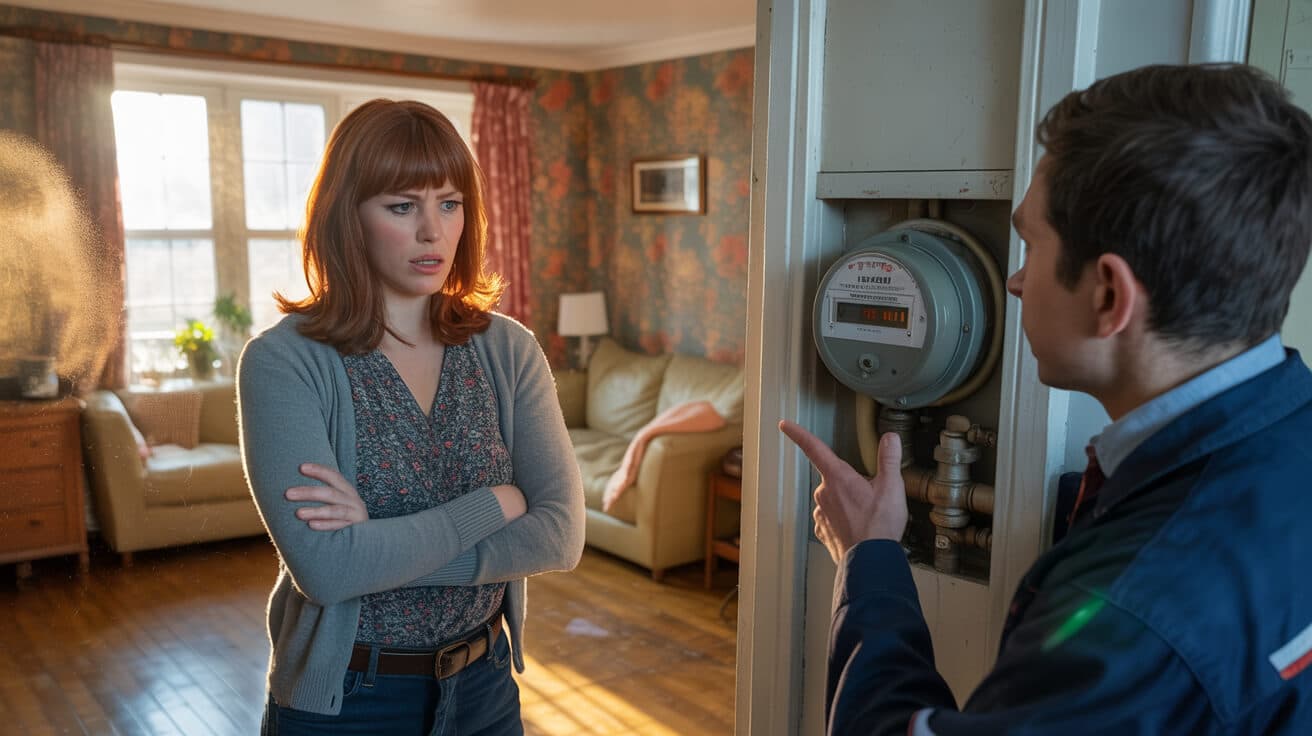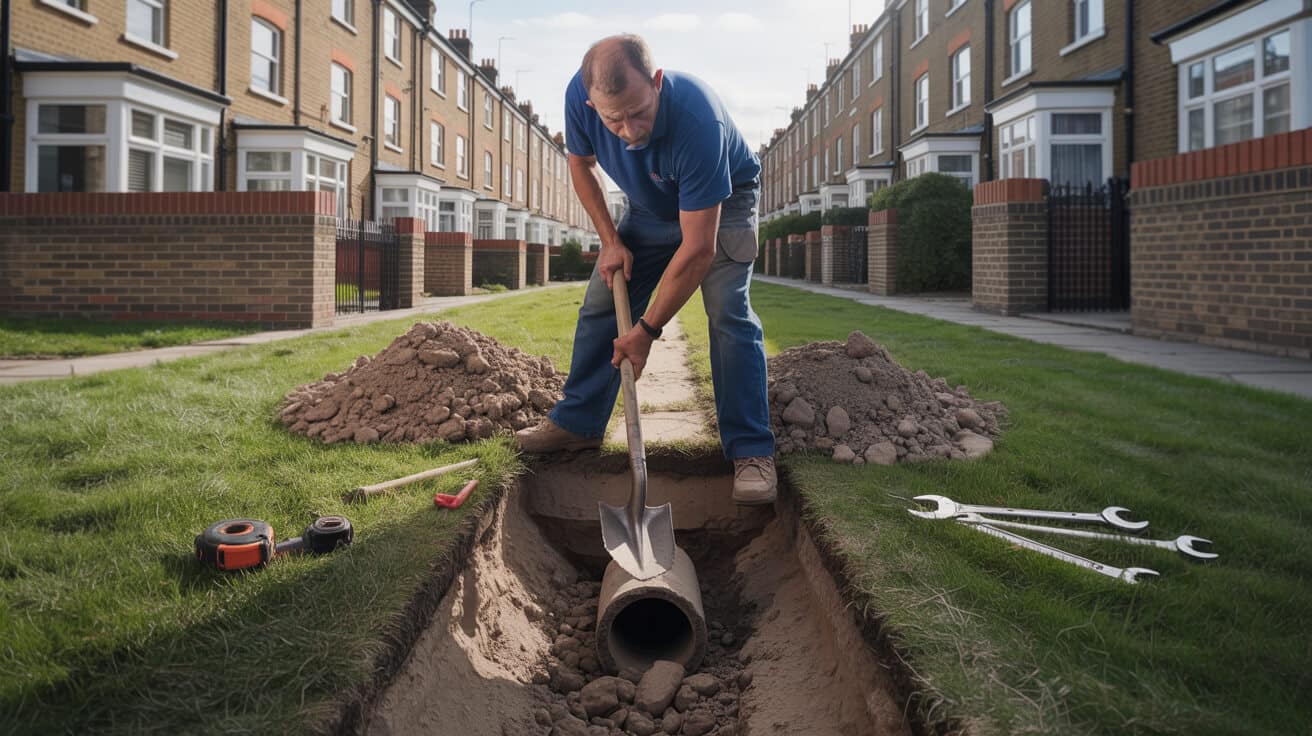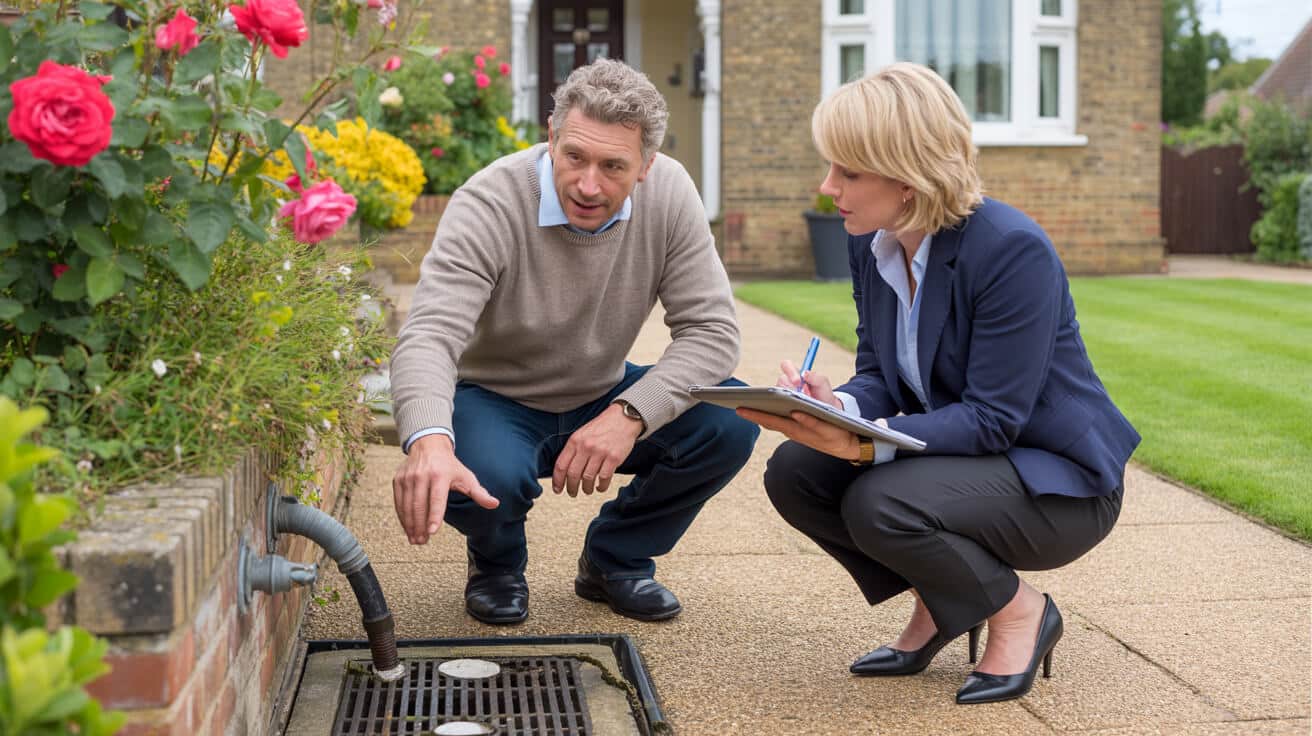 Solar Thermal and Biomass Green Alternatives for Uk Homes
Solar Thermal and Biomass Green Alternatives for Uk Homes
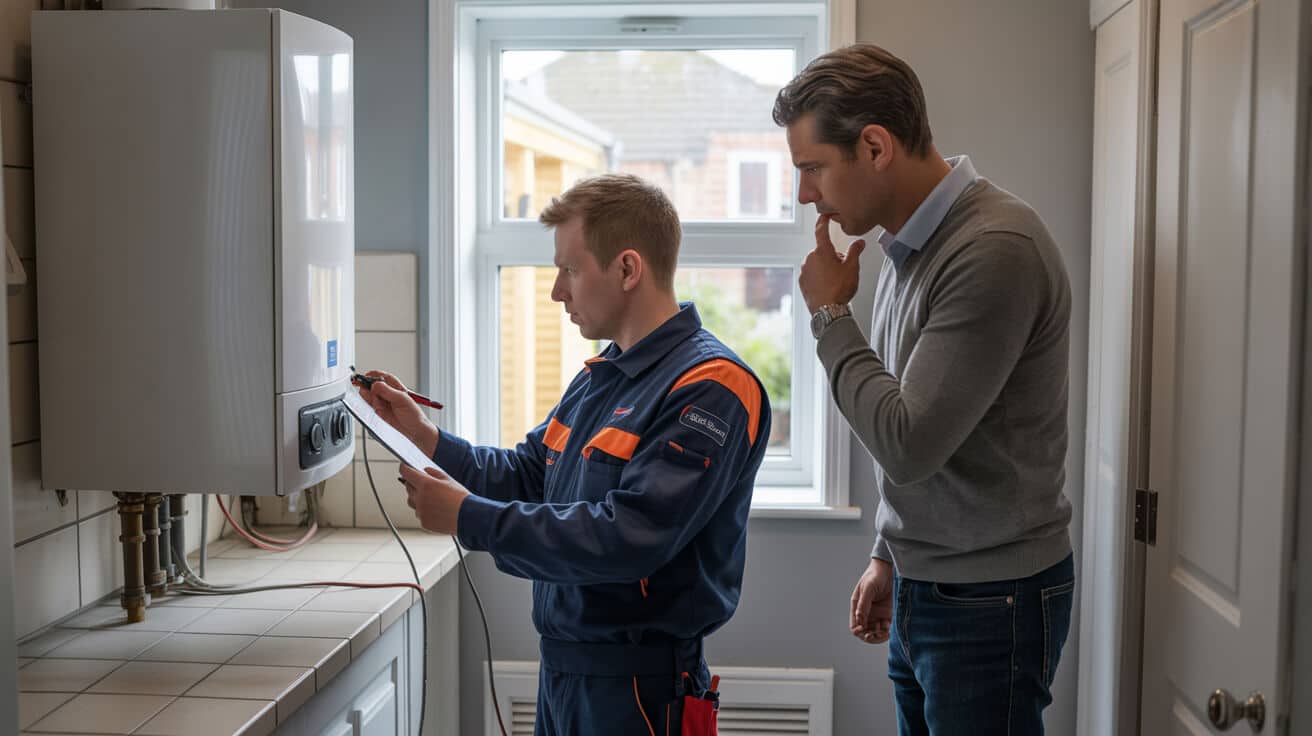
Why Are More Homeowners Switching to Solar Thermal and Biomass Today?
When energy bills spike and regulations get tighter, property owners are forced to make practical decisions—not just for the planet, but for their monthly outgoings. Since 2021, UK gas and electricity prices have climbed by over 50%—a rise impossible to ignore for anyone running a household, a letting portfolio, or a business property (Ofgem). Now, “sustainable” is code for “cost control” as much as climate action. The question is less about eco-virtue and more about avoiding cost traps, keeping values up at sale or let, and ensuring compliance in a future where energy waste can end in a fine.
When every extra pound on your bills chips away at comfort and control, the old way begins to look riskier than the alternative.
Government-backed grants and improved technology have changed the balance. Solar thermal and biomass systems, which used to feel niche or experimental, are now featured in MCS and Energy Saving Trust guides as genuine property upgrades—often with direct grant support between £1,000 and £7,500 (Energy Saving Trust). This isn’t greenwashing—it’s policy catching up to reality.
But here’s the rub: the real problem is less about willingness and more about the confusion left by marketing, jargon, and a sea of quick quotes from “fast-fix” websites. Owners are forced to judge between choices they barely understand, risking grant loss or expensive mistakes. Many sit out entirely, missing out on funding, while others buy systems that don’t match their property or end up without the paperwork needed for value protection.
This doesn’t need to be a guessing game. A methodical, survey-driven, compliance-first approach—backed by solid engineering and honest guidance—makes the move to solar thermal or biomass not just affordable, but genuinely smart for the right property. The right process protects your savings, your comfort, and the future sale- or let-ability of your investment.
Are Solar Thermal and Biomass Actually Suitable for the Same Property Types?

The blunt truth: solar thermal and biomass are “green” only if they’re fitted to the conditions they’re designed for. Picking between panels and a wood-fuelled boiler is rarely about fashion—it’s about property demands, daily routines, and regulatory realities.
Who Should Instal Solar Thermal?
Solar thermal panels absorb sunlight and transfer it as heat to your hot water cylinder. No fuss, low noise, and—if your roof’s right—low hassle.
- Ideal Fit: Homes with 3+ square metres of unshaded, south-facing roof. If you’ve got east–west, you’ll get reasonable results; north roofs are out.
- Household Profile: People who use hot water in the mornings and evenings—family baths, showers, or heavy daytime use (think: working from home, cycling kids, guest rooms).
- What’s Required: An existing hot water tank (combi-only homes usually face higher upgrade cost); and a roof strong enough for panel load.
- Lifestyle: Practically silent, minimal upkeep—an occasional antifreeze check, a cylinder service every few years.
When Does Biomass Make Sense?
A biomass boiler burns wood pellets, chips, or logs to heat your water and radiators. This isn’t an “add-on”—it’s a boiler swap, often for homes off the mains gas grid.
- Ideal Fit: Rural, off-grid homes with plenty of space for fuel storage and strong utility access.
- Household Profile: Larger properties or family homes, especially those currently on oil or LPG; or small business premises with high heating loads.
- What’s Required: Utility room or external building for the boiler, plus fuel store (ideally dry and easily accessible).
- Lifestyle: Not “fit-and-forget”—expect regular pellet deliveries and simple maintenance (ash clearance, hopper checks).
Solar thermal is gentle and near-invisible—the fit-and-forget upgrade for hot water. Biomass is bold: a full boiler rethink for those with the space and routine to run one.
Picking the wrong system is the silent budget-bleed. Proper surveying—by a certified installer who quotes based on property measurements, not copy-paste online calculators—prevents wasted cash and hassle later.
What Can You Really Expect From Solar Thermal in a Typical UK Home?

For the right property, solar thermal isn’t just greenwash—it can cut a solid chunk of your hot water bill and shield you from rising gas prices. But it’s never “one size fits all”.
Real-World Results—How Solar Thermal Delivers:
- Installation (cost): £3,000–£5,000 for a typical three-bed home, including VAT and accredited instal.
- Energy Saving: Usually shaves 50–60% off your annual hot water running cost—translating to £70–£100 or more per year for a family household ([The Eco Experts](https://www.theecoexperts.co.uk/solar-panels/thermal?utm_source=openai)).
- Carbon Cut: About 400kg of CO₂ per year saved—nearly equivalent to the annual emissions of a family car.
What Makes or Breaks Efficiency?
- Orientation matters: The best return is from an unshaded south-facing roof, but east–west can work with a smaller drop in output.
- Cylinder needed: No hot water tank? You’re out, unless you’re prepared for a bigger plumbing upgrade.
- Low hassle: Once installed, it’s silent and “hands-off” apart from regular antifreeze (glycol) top-ups and simple inspections.
Integration with modern heating systems is generally straightforward, especially for homes already using a system or conventional boiler. Even in renovations, the added labour is rarely much more than traditional cylinder swaps.
A solar system is a silent employee: it quietly earns its keep—if you give it the right roof and regular service.
Get your home surveyed with a clear eye on orientation, shade, and plumbing: a quick survey up front pays itself back in performance—not just in grant eligibility.
What Sets Biomass Apart? Comparing Returns, Lifestyle, and Real-Life Factors
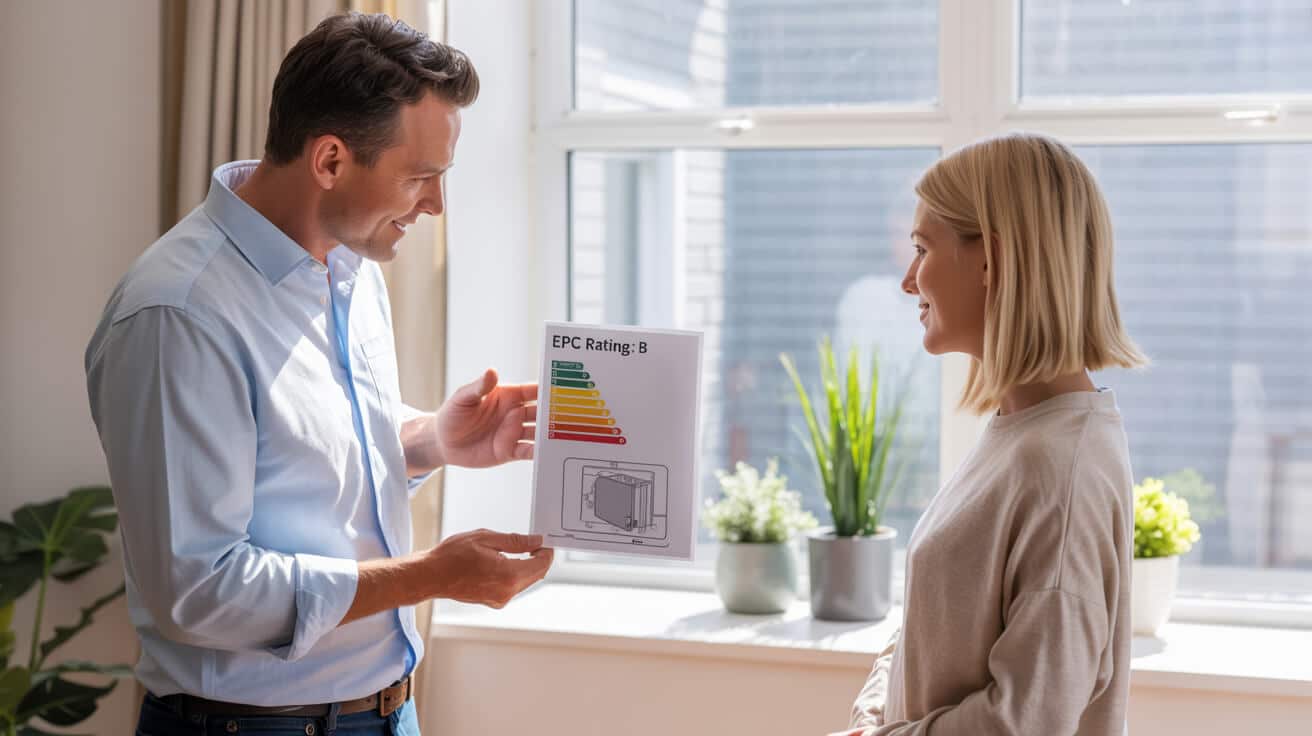
Biomass heating is a commitment—a lifestyle adaptation with substantial cost and carbon pay-off for properties that fit. Here’s how it stands against solar thermal, and why it matters if you have the space, budget, and attitude for recurring fuel management.
| **Solar Thermal** | **Biomass Boiler** | **Key Comparison** | |
|---|---|---|---|
| Heating Scope | Hot water only | Full heating & hot water | Biomass = boiler replacement |
| Instal Cost | £3,000–£5,000 | £10,000–£20,000 | Biomass cost higher, but grant offsets |
| Typical Savings | £70–£100/year | £600–£1,800/year | Highest savings for oil/LPG homes |
| Maintenance | Minimal | Weekly ash, service annual | Biomass: more hands-on |
| Space Needed | Panels + tank | Boiler, large fuel store | More gear, more room needed |
(Data: Energy Saving Trust; The Eco Experts; Government guidance, 2024)
The Practical Realities
- Space is king: Biomass needs a weather-safe fuel store, room for a sizable boiler, and practical access for deliveries. If you don’t have a driveway or utility outhouse, rethink.
- Lifestyle: Regular pellet refilling (usually via automated hopper), ash clearance once a week, and annual engineer check. Think of it like managing a wood-burning stove, but on a central-heating scale.
- Best fit: Huge wins for properties off the gas grid—with oil, LPG, or electric bills biting hard. Less suitable for small flats or dense urban homes.
Grants make the numbers work if you qualify, but it’s the right engineering, by the right specialist, that converts a workable system into long-term savings and minimum fuss.
What Grants Exist—and Why Do Some Households Miss Out Entirely?
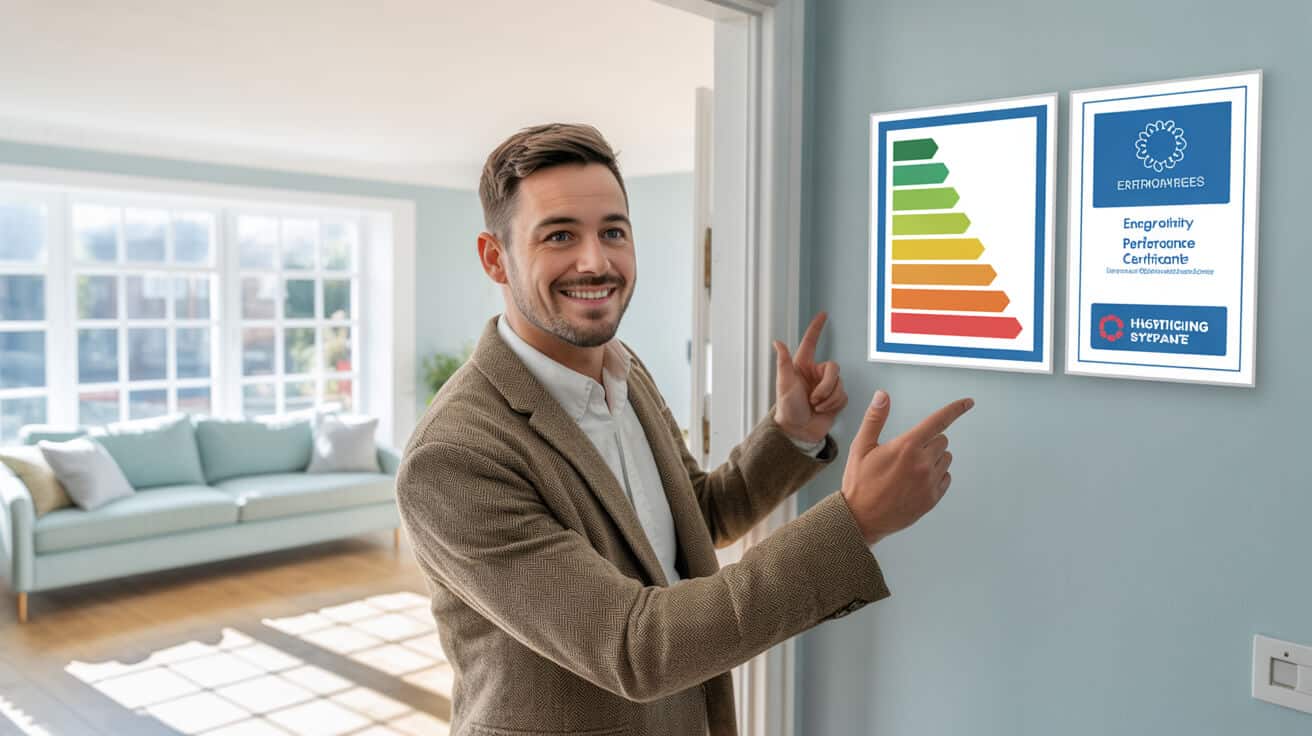
For most households, the difference between “too expensive” and “manageable investment” is the UK’s grant environment—especially the Boiler Upgrade Scheme (BUS) and the sometimes-overlooked ECO4.
The Key Grant Routes
- Boiler Upgrade Scheme (BUS): Up to £7,500 off a new biomass boiler or heat pump; strict eligibility—must be off the gas grid, rural, and installed by an MCS (or WaterSafe, G3 for hot water) certificated engineer. Solar thermal alone isn’t always “grant direct” but can piggyback on other scheme upgrades ([Kensa](https://kensa.co.uk/funding/boiler-upgrade-scheme?utm_source=openai)).
- ECO4: Broader scope; targets low-rated, high-bill homes for whole-house upgrades. Often helps with solar, biomass, insulation and controls as integrated works ([National Energy Action](https://www.nea.org.uk/advice-and-support/energy-company-obligation-eco/?utm_source=openai)).
- Local/Regional Top-Ups: Some councils boost what’s available nationally—ask your installer for the current funding map.
Your system is only as good as its paperwork: grants, warranties, and legal protection all ride on certified installation and full documentation.
Where Do People Slip Up?
- Installer errors: If your engineer isn’t on the TrustMark, WRAS, G3, or MCS register, money is left on the table—and warranties dangle by a thread.
- Eligibility confusion: Urban locations and homes with existing high EPC ratings may be locked out of bigger grants.
- Paperwork gaps: “DIY” or non-accredited jobs are a dead end for funding, and often cause headaches at future sale or let.
The best fix: insist on a survey and ask for evidence of grant eligibility before any instal work begins. The companies who plan the paperwork as truly as the pipework are the ones whose clients end up saving both money and stress.
Will Solar or Biomass Actually Pay Off? Where the Numbers Land
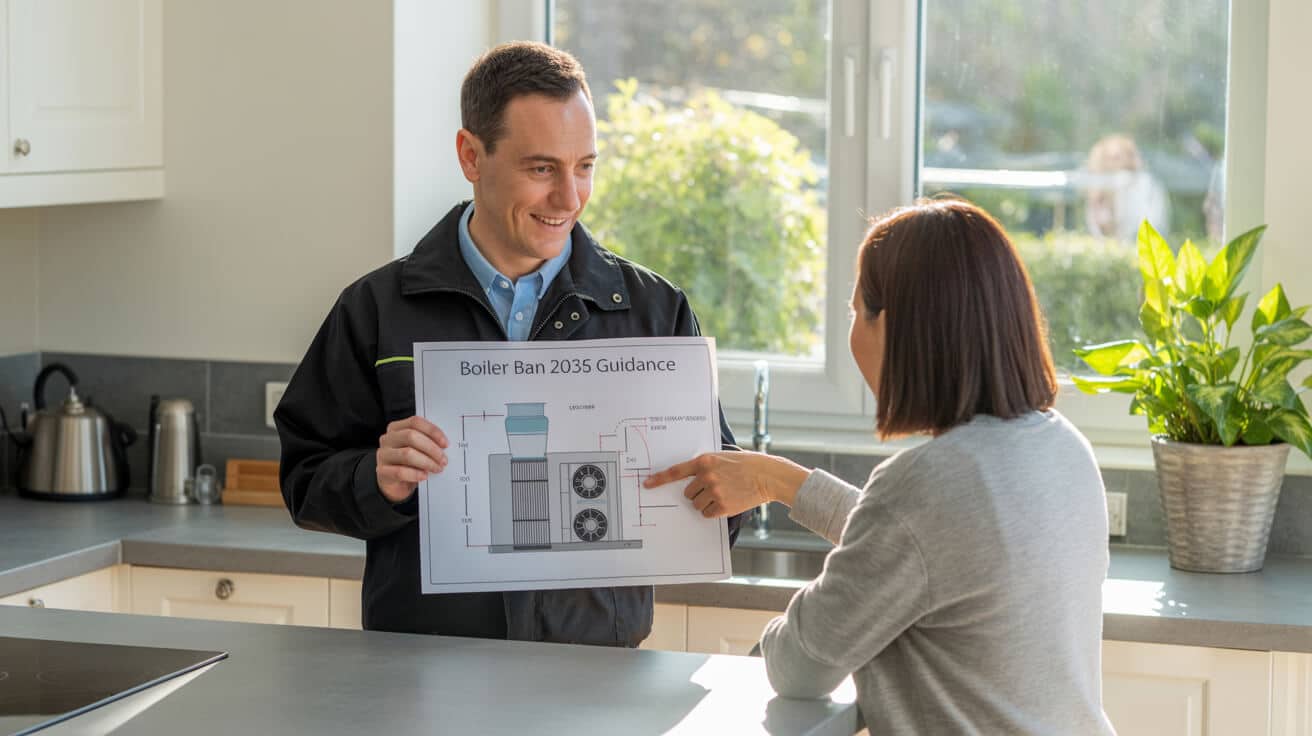
Let’s look beyond hype. Every system’s payback period depends on four factors: installation cost, grants, property fit, and how you use it. Miss one, and the “savings” vanish.
| **Upfront Cost** | **Annual Saving** | **Payback – No Grant** | **Payback – With Grant** | |
|---|---|---|---|---|
| Solar | £3,000–£5,000 | £70–£100 | 7–12 years | 3–6 years |
| Biomass | £10,000–£20,000 | £600–£1,800 | 12+ years | 5–7 years |
(Data: Plumbers 4U estimates, Energy Saving Trust, MCS 2024)
What Makes the Difference?
- Solar thermal’s “sweet spot”: is for households with high hot water use and big bills—especially if you’re already running a cylinder.
- Biomass shines: for rural/off-grid properties, especially if swapping out oil or LPG—where mains gas is unavailable.
- Combining both?: Hybrid setups are rare but can maximise efficiency: solar for hot water in summer, biomass for whole-house warmth in the colder months—but only when professionally coordinated.
Cutting your bill isn’t an accident; it’s about mapping options to real-world needs and funding. A custom survey, lined up with grants, tilts the ROI in your favour.
Don’t gamble on generic ROI calculators or vague “from £x per month” ads. Commission a credentialed survey and let the numbers match your property and your habits—then make funding claims early.
What Should Every Homeowner Double-Check Before Committing?
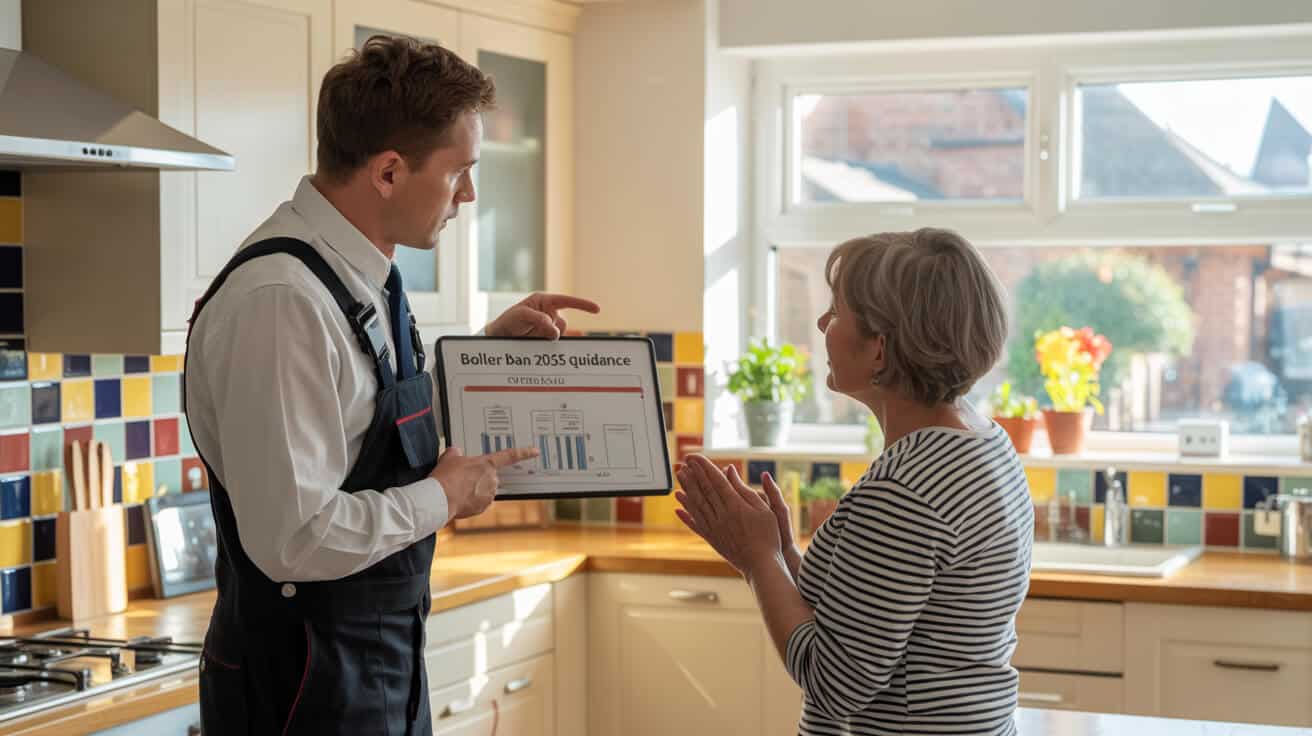
The installation is just the headline—what comes after separates projects that keep giving from those that fizzle. Here’s what to probe, demand, and document before you sign.
The Hard Must-Haves
- Property fit: Solar needs unshaded (ideally south/southwest) roof and an existing or installable hot water cylinder. Biomass needs spacious, dry storage for pellets/logs and a dedicated boiler slot.
- Installer credentials: Grants, warranties, sale legalities—these all depend on a MCS, WaterSafe, WRAS, or G3 credentialed engineer with a verifiable record.
- Price transparency: Require a line-item, scope-fixed quote—not an open-ended estimate bulked up with vague extras.
Aftercare Essentials
- Annual reminders: Reliable installers will prompt you for scheduled maintenance—a necessity, not a luxury, for grant coverage and insurance.
- Photo log & user guide: A good handover means visible “before and after” records, how-tos for regular checks, and direct contact for support.
- Warranty & log: All must be registered with benchmarked sign-off and a full service history for ongoing protection.
Don’t let a complex process push you into shortcuts. The companies who plan, document, and teach save you money twice: first on grant access, and again at resale.
If a prior grant or warranty eligibility check failed—or your layout is “awkward”—get a survey first. It’s accuracy now that unlocks value later and keeps stress to a minimum.
What Goes Wrong With Green Installations—and How Do You Avoid Losing Out?
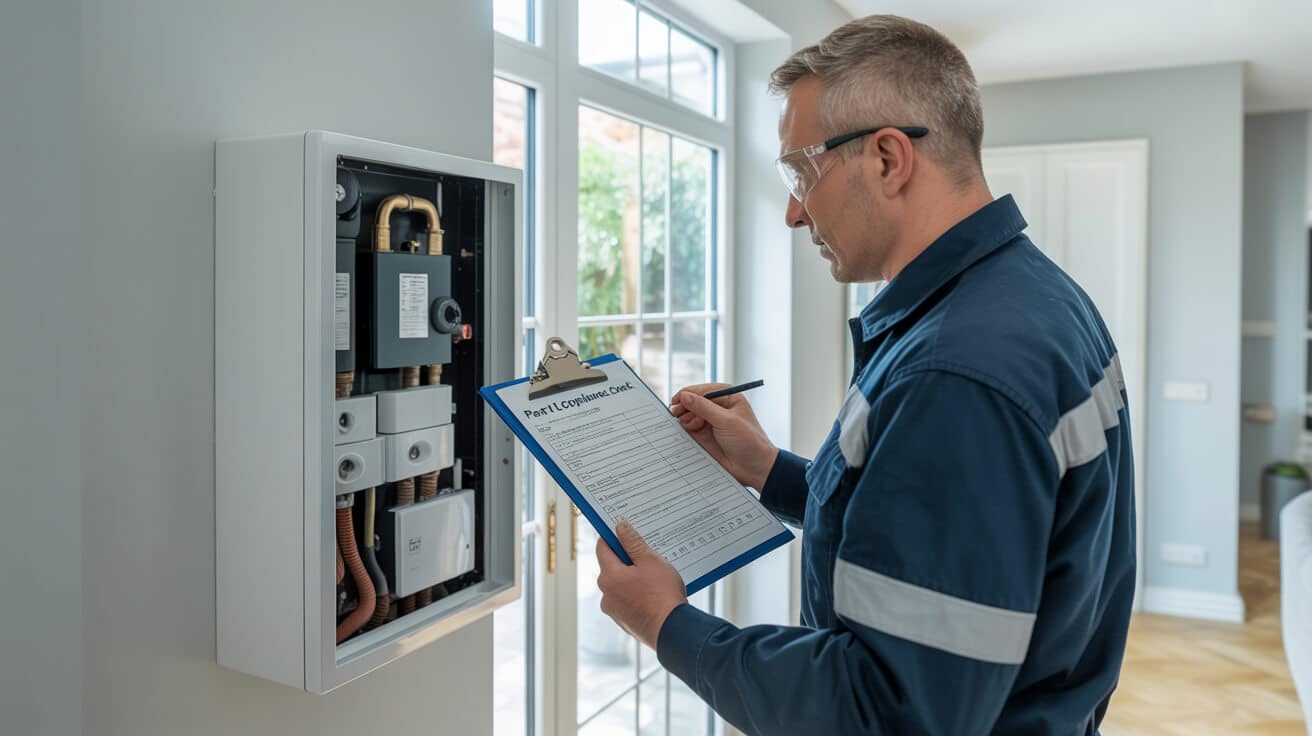
With the surge in demand, fast fixes and template instals are everywhere. Avoidable mistakes are eating into people’s savings—and sometimes their resale value or legal standing.
Typical Pitfalls (That Wreck ROI)
- Lowest bid wins: Choosing on upfront price alone, not technical specification or suitability.
- Non-certified installer: Grants and warranties melt away without the right accreditations.
- Poor logistics: Overlooking fuel delivery hassles for biomass, or panel placement/insulation for solar.
- Paperwork neglect: Losing grant coverage due to missed forms or paperwork deadlines.
- Property constraints ignored: Combi-only homes, listed buildings, or conservation restrictions not addressed before instal.
What’s the Genuine Fix?
A certified, survey-first approach—where engineering, compliance, and aftercare are in lockstep—protects every pound you invest.
How Plumbers 4U Shields You
- Survey-first workflow: Projects start with a technical site assessment; no rushed quoting off Google Street View.
- Grant autopilot: Paperwork and compliance steered in-house—no blame-passing if a deadline is missed.
- Total accreditation: WRAS, G3, MCS-qualified personnel only: every instal is compliant and covered.
- Aftercare that endures: Digital reminders, full photo handovers, ongoing service: we’re visible beyond the first invoice.
You’re not simply avoiding pitfalls—you’re guaranteeing future savings, comfort, and insurance against legal or compliance shocks.
Why Are Credentials, Compliance and Ongoing Support Essential?
When thousands of pounds in grants, decades of property value, and every winter’s comfort ride on one upgrade, skipping diligence is the most expensive move in the book. Your savings, security, and future sales all depend on documents and sign-offs that form the backbone of your investment.
| **What Counts** | **Plumbers 4U Standard** | **What It Does For You** |
|---|---|---|
| Accreditation | WRAS, MCS, G3 | Unlocks grants, legal sign-off, insurer trust |
| Insurance | £2 million+ coverage | Shields you—and your property—if things go wrong |
| Evidence | Signed log, photo-pack | Simple resale or compliance proof |
| Aftercare | Digital reminders, live Q&A | No surprises, just working systems |
| Quote transparency | Scope-fixed, line-item | No hidden charges, no up-sell traps |
A world-class instal with sloppy paperwork or no aftercare is *not* world class—grants get whipped back, insurers refuse claims, and your property value simply stalls.
Set the bar high: demand visible credentials, written documentation, and aftercare you can reach out to when you’re in doubt, not just during the guarantee period but for years to come.
Book a Professional Home Heating Assessment With Plumbers 4U Today
The era of “off-the-shelf” upgrades, rushed paperwork, and risky compliance is over—especially if you value comfort, long-term savings, and peace of mind. Plumbers 4U offers a survey-driven, engineering-first, fully accredited and grant-ready approach that puts you—your property, your goals—at the heart of the project.
- Survey-led, zero-pressure process: We start with technical diagnostics. No fast-talking sales—just practical advice and options that actually fit your building.
- Matching solution, not what’s “on the shelf”: We help you weigh solar thermal, biomass, or even a hybrid depending on what serves your daily needs and layout.
- Grant navigation built in: Our specialists handle every form, eligibility check, and compliance for grant routes across regions—so you never miss out.
- Benchmark compliance—always: Only WRAS, MCS, or G3 registered engineers touch the job. Completion paperwork, warranties, and insurance sorted as standard.
- True aftercare: Service reminders, digital handover packs, and a genuine Q&A line for as long as you’re a client—no expiry date.
Rushed paperwork, poor fit, or uncertified instals don’t just cost you money—they can undo years of security and comfort overnight.
Book your free home assessment with Plumbers 4U now. Take the guesswork out of grants and green upgrades. The window for full support won’t last, but the rewards—lower bills, stronger compliance, and reliable heating—will endure for years to come.
Frequently Asked Questions
How can homeowners decide whether solar thermal or biomass heating will actually fit their property’s daily life?
Choosing between solar thermal and biomass heating is less about headline savings and more about how each system shapes your living routine, storage space, and compliance path.
Solar thermal heating quietly upgrades your existing hot water setup, relying on sunlight absorbed by roof-mounted panels to supply stored warmth for showers or taps—without much impact on your day-to-day. There’s no schedule for fuel deliveries, no need to monitor a bunker, and maintenance basically means a glycol check every few years. This system excels when you already own a compatible cylinder and the roof faces the right way; for city or semi-detached homes, it’s nearly invisible in use. But, it won’t heat radiators or floors—so in most cases, your main central heating stays as is.
Biomass, meanwhile, reinvents your entire home heating, burning bulk wood pellets or logs stored on site to feed radiators and hot water alike. That’s great for rural, off-gas homes with plenty of room, where replacing oil or LPG brings fast EPC and running cost wins. But it also means managing ash disposal, keeping the fuel supply dry and topped up, and booking a yearly professional sweep. Setup and permissions are more complex, as air quality laws, noise, and delivery logistics can block urban or smaller properties altogether.
Every home has an ecosystem—if your lifestyle, storage, and service expectations don’t fit the heating type, even grant funding can’t make it work.
Quick-fit table: Who’s best served by each system?
| System | Ideal Fit | Lifestyle Impact | Ongoing Tasks |
|---|---|---|---|
| Solar Thermal | South/West roof, cylinder | Silent, set-and-forget | 3–5 year service check |
| Biomass | Rural/off-grid, ample space | Hands-on, fuel deliveries | Weekly fuel, annual service |
What are the unspoken costs and savings—financial and practical—of each renewable heating technology?
Beyond the price tag, it’s the small routines and hidden factors that determine the real cost and value of solar thermal and biomass heating.
Solar thermal’s initial outlay (£3,000–£5,000) is easy to estimate, as spec is mostly standardised—panels, controller, possibly a new cylinder. After grant options are factored in, expect low annual running costs (often under £100) because sunlight is free and maintenance is sparse. Most homes retain their gas or electric backup for overcast spells, so some bills remain, but savings accumulate over time. It’s compatible with most grant-funded, low-carbon systems—but rarely eligible as a standalone for direct support.
Biomass costs are steeper upfront (£10,000–£20,000+), reflecting the larger scope: boiler, bunker or hopper, flue, site prep, and high labour. Pellet prices do shift with market pressure, but most owners budget for one to two tonne deliveries per winter. The ongoing burden is handling fuel, removing ash, and maintaining the system’s airways—fail to keep up and downtime or warranty disputes can follow. The Boiler Upgrade Scheme can subsidise a substantial portion if you meet criteria. For landlords or portfolio owners, savings come not only from cheaper energy but also immediate compliance upshifts—making older homes legally lettable far quicker.
| Category | Solar Thermal | Biomass Boiler |
|---|---|---|
| Installed Cost | £3k–£5k | £10k–£20k+ |
| Annual Spend | £50–£150 | £800–£1,500 (fuel + care) |
| Fuel Impact | None (sun powered) | 1–3t storage, deliveries |
| Maintenance Findings | Low effort | Manual, with cleanout/tuning |
| Grant Realities | Rare, hybrid only | Robust if rural/off-gas |
Solar thermal is cost-light to run; biomass promises bigger savings but only to owners who thrive on planning deliveries and routine care.
Which government incentives, regulations, or funding swings can tip the balance for different property owners?
UK government funding is now sharply split—biomass boilers consistently attract Boiler Upgrade Scheme grants (£5,000–£7,500), but solar thermal receives support only when bundled inside hybrid, multi-technology projects or as part of an ECO4 retrofit targeting vulnerable residents.
If you own or manage an off-gas or rural property, a compliant biomass instal nearly always qualifies for the BUS—assuming the property satisfies EPC score, design, and installer certification. This grant is paid up front, directly removing a barrier to investment, and is often paired with regional council top-ups where available.
Solar thermal’s main route to support is as a secondary measure, added to an eligible BUS or ECO4 project to boost carbon reduction and EPC points. Standalone instals, no matter how green, usually don’t make the cut for direct government funding. Exceptionally, low-income or “fuel poverty” upgrades through local authorities may consider solar thermal, provided a TrustMark-accredited installer is used.
Grant rules, paperwork, and even eligible system types change every year—meaning an up-to-date survey and a design that matches local plans and product lists is non-negotiable.
| Funding Type | Solar Thermal | Biomass Boiler |
|---|---|---|
| BUS Main (2024) | Not standalone | £5k–£7.5k per system |
| ECO4 | Sometimes (as hybrid) | Yes, priority category |
| LA/Regional | Only in hybrid setups | Select rural support |
| RHI (closed) | None | None post 2022 |
Regulation and eligibility are moveable targets. Work with a certified installer who tracks schemes and preps documents—otherwise, support can slip away.
How do legal benchmarks and compliance regimes (EPC, MEES) affect the case for each system in residential and rental property?
Legal compliance—especially around minimum EPC and MEES thresholds—now demands that property owners make sharp, accountable choices in home heating.
Upgrading oil or LPG to biomass typically triggers the steepest rise in EPC, which is the key for landlords, letting agents, or managers seeking to pass MEES and keep or gain tenants. These systems may nudge a “D” or “E” rated rural property up to a “C” or above, impacting marketability and insurance status. For business owners and larger portfolios, speed to compliance often outweighs operational hassle. The payoff is immediate eligibility for grants and sustainable rental income—but only with scheduled servicing and all grant documentation in place.
Solar thermal, meanwhile, scores its main points in “carbon” and domestic hot water, not in overall property EPC. Annual savings, while consistent (£70–£120), impact only the 15–25% of energy devoted to hot water—not the more substantial central heating load. Every improvement counts, though, and solar thermal’s lack of noise, disruption, or emissions can boost passive compliance or even support listing on sustainable property registers.
Certainty on compliance only ever comes with documentation. Without certified instal or maintenance logs, neither system can be counted in a legal EPC.
| Impact Zone | Solar Thermal | Biomass Boiler |
|---|---|---|
| MEES Compliance | Rare (hot water only) | Fastest off-oil route |
| EPC Increase | Modest (up to 3%) | Large (up to 4 bands) |
| Rental Insurance | Slim/Limited impact | Strongest result |
| Proof Needed | TrustMark/MCS+ log | MCS/Benchmark |
What mistakes or oversights most often cause underperformance or compliance failures with these technologies?
In both technologies, underestimating the details leads to lost money and legal difficulties. For solar thermal, main issues are incorrectly sized or oriented panels, incompatible or old hot water cylinders, and poor maintenance—glycol or antifreeze ignored, airlocks left unresolved, or rogue installers used out of convenience. Forget TrustMark or MCS, and not only do you lose out on support, you risk insurer disputes and EPC performance not being logged.
Biomass struggles when owners underestimate fuel storage demands, local air quality control zones, or the complexity of routine maintenance. Skipping a professional assessment means potential fines (in Clean Air Zones), failed emissions tests, and grants being clawed back. In every grant-supported instal, missing paperwork or service intervals can undo savings and rental eligibility.
Regulatory gaps and failed savings nearly always trace back to rushed planning or skipping the engineering survey—cheap now, costly later.
Most common preventable failures
- Solar thermal: Panels in shade, old tank never replaced, glycol left stagnant, no compliance certificate.
- Biomass: No safe bunker, grant paperwork incomplete, city/urban siting, missed annual service, unregistered installer.
What is the reality of replacing an entire heating system—installation timing, risk, and property transformation?
A biomass heating overhaul resets your property’s energy profile but comes with notable disruption and responsibility. Installers strip out the old boiler, set beds or pads for the new fuel store, and fit all-new flues; the job takes at least a week in most cases, and relies on site conditions and permit checks. Expect a rapid payoff only if fuel supply, access, and servicing can be managed year-round—instal goes hand-in-hand with grant eligibility checks and EPC re-scoring.
Solar thermal, by contrast, is a highly focused upgrade. Installation typically wraps up in two to four days; suitability checks for roof and old cylinder may add days before work starts, but disruption to home life is minor. Expect your property to run dual energy modes (main heat plus solar hot water) after, retaining your boiler or heat pump for everything except the cylinder. commissioning is fast, but compliance documents must be completed right then to secure warranty and future grant top-ups.
Both cases require a traceable paper trail—incorrect documentation on the day of instal jeopardises every future compliance and grant claim.
For a compliant roadmap—with full project management—Plumbers 4U offers accredited, survey-driven solutions from site assessment to commissioning, so your home is ready for decades of low-carbon, legally sound comfort.

